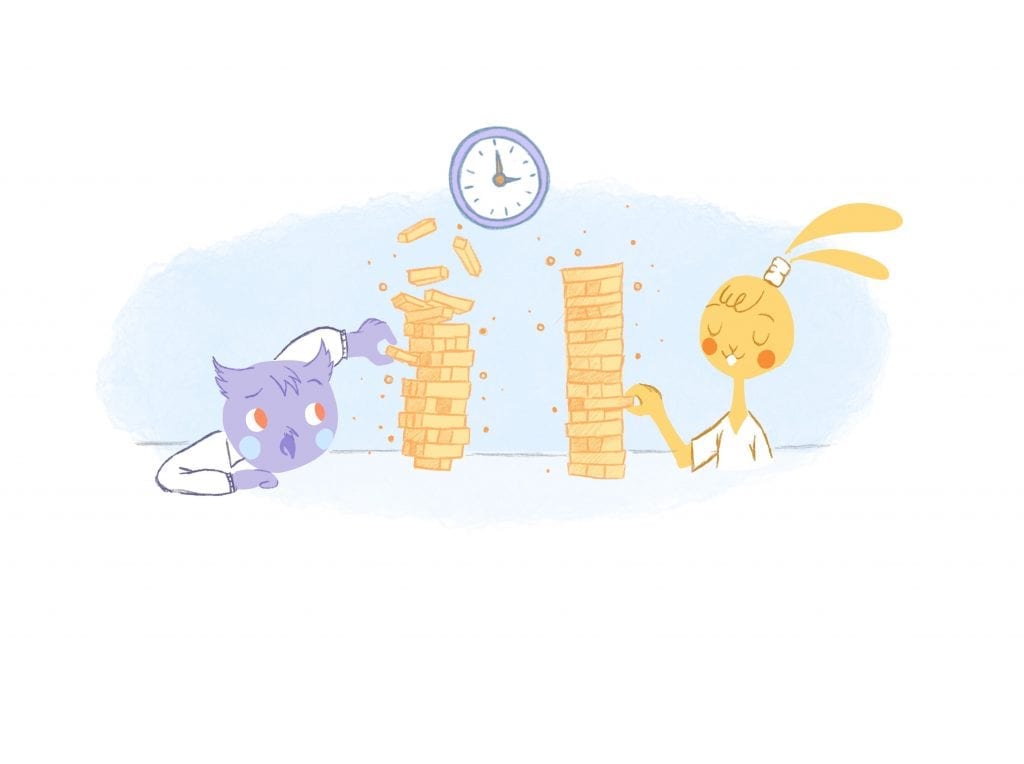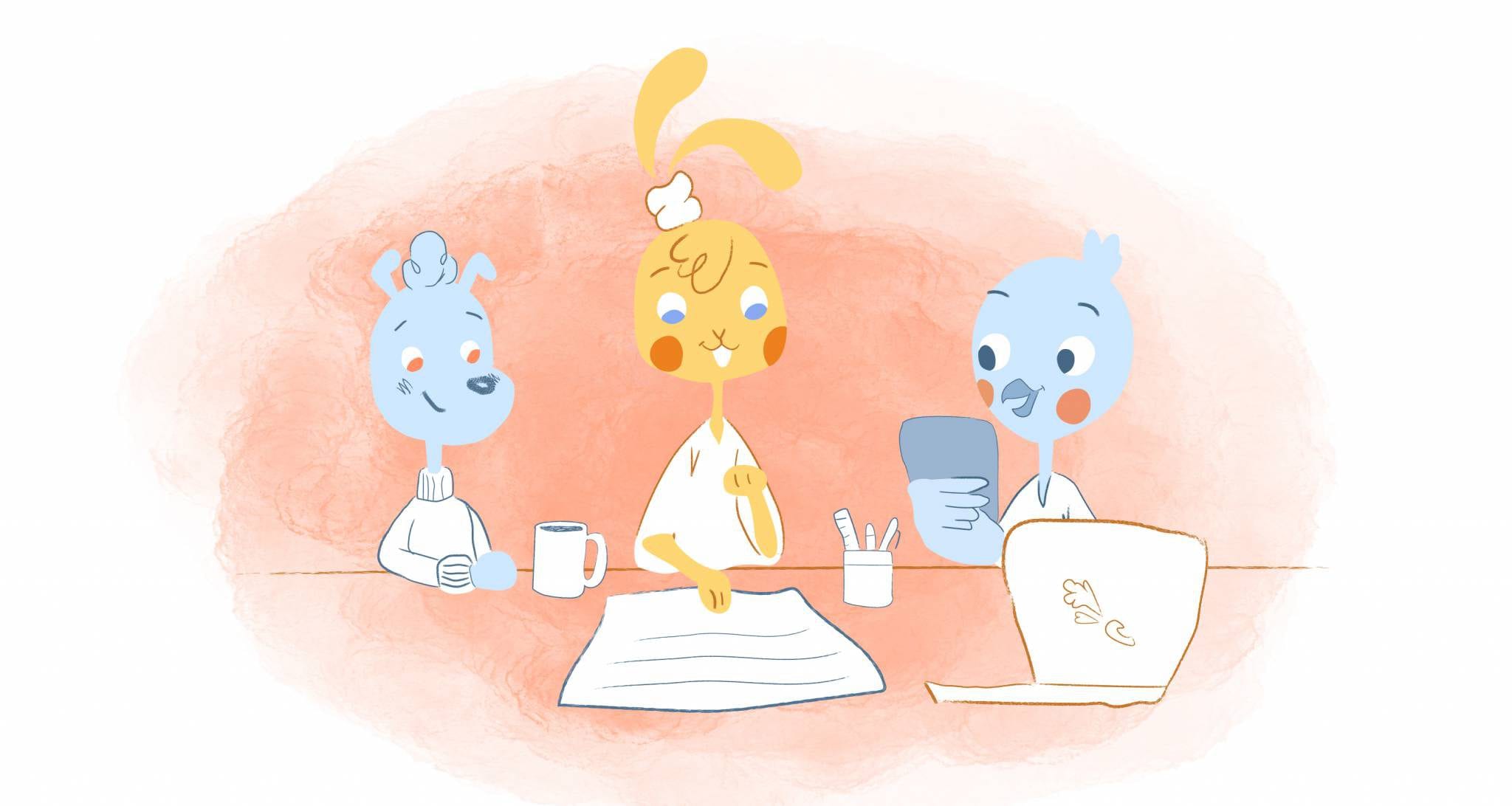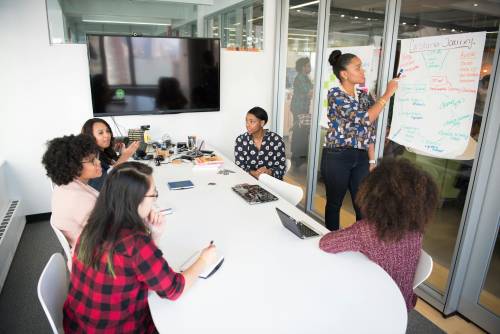

Because time is your most valuable and precious resource, it’s only natural that you want to squeeze the most out of it each day. That’s probably why you’re trying to strengthen your time management skills, like reducing time-sucks from your schedule. Try as you might, these time-sucks are inevitable but, believe it or not, they may also have value. Here are thoughts about valuable time sucks, and how to stop them.
What can you do about things, work, and events that are a colossal waste of time? It’s all about keeping these time-sucks in check and stopping them before they overtake your schedule.
Interruptions
Smartphone notifications, meetings, and noisy offices are the most common distractions in the workplace. And, while they can be frustrating and impair productivity, they aren’t always bad.
According to one study from Elana Feldman, an assistant professor of business at the University of Massachusetts Lowell, 75% of “participants logged at least one positive interruption.” The catch? The interruption needs to be viewed as “time worthy.”
“Interruptions are ‘time worthy’ if they involve tasks that are deemed high-priority, relevant to other ongoing projects, and clearly within the scope of employees’ jobs,” notes Feldman. Interruptions are also “generally associated with positive feelings if they are assessed as well-timed.” That means that you’re not interrupted when “deeply absorbed in another task or need a break from their current task.”
The study also found that “shorter interruptions generally spark positive rather than negative emotions.”
How can you use this to your advantage? Well, when you don’t want to be interrupted, take precautions like turning off your phone, blocking apps at certain times, and only attending meetings that serve a purpose. You may also want to place a ‘do not disturb’ sign on your office door or put on a pair of headphones.
Additionally, block out time for these interruptions. For example, you may be tempted to scroll through social media or your inbox because you need a break. That’s fine when you’re in an energy lull. But, make sure that set a limit so that you aren’t wasting any more time then you have to on social media or email.
I’d also recommend that you share your calendar with others. The reason? It’s the easiest and fastest way for others to see when you’re free to meet.
Work
We all have to work — and we love it. But, working too much leads to burn out. And, what that happens, you can expect consequences like poor health and diminished work quality. It can also harm your relationships and reputation.
How can you avoid burn out? Choncé Maddox suggests in a previous Calendar article that you:
- Keep a realistic schedule.
- Know what your stress triggers are.
- Delegate or drop tasks that aren’t worth your time.
- Take breaks throughout the day.
I’d also add that you need to establish boundaries. That means when you’re at home eating dinner with your family or relaxing after a long day, don’t answer any work-related messages. If possible, wait until tomorrow morning. What if there’s an emergency? Trust me, if it’s life or death, you’ll know. Everything else can remain within a reasonable timeframe.
Socializing
“Human beings are an ultra-social species — and our nervous systems expect to have others around us,” Emiliana Simon-Thomas, Ph.D., Science Director of the Greater Good Science Center at The University of California, Berkeley, tells NBC News. Because of this, meaningful relationships can make us healthier, happier, and more productive.
On the flipside, socializing can be distracting and exhausting. What turned out to be a quick chat with a co-worker or phone with a friend suddenly becomes an hour-long conversation. To make matters worse, if the other person is complaining the entire time, it’s draining emotionally — in addition to preventing you from getting things down.
I don’t think that you should plan every social interaction — they’re more enjoyable when spontaneous. But, you should work on establishing boundaries.
Let’s say that you are taking a 10-minute break in-between tasks. You can use that time to talk to a colleague or employee. But, don’t go over those 10-minutes. If you want to pick up the conversation again, suggest that you grab lunch together.
What if a family member or friend calls when you’re at work? Politely let them know that now isn’t the best time to talk but you’ll call them back when you’re free.
And get into the habit of leaving some unstructured free time in your calendar. For example, leave an hour of blank space in your schedule each day. You don’t have to spend that block socializing. But, it’s there just in case. Or, on a Saturday, leave your schedule open so that if a friend texts you at the last minute, you can go and hang-out with them because you don’t have anything else scheduled.
Making Lists
I’m not an anti-list type of person. They do, after all, serve a purpose. They prevent you from forgetting important things and get thoughts out of your head so that you can focus. And, when you cross items off, you do have a sense of accomplishment.
At the same time, lists can be overwhelming when they’re too long. Also, research from Kevin Kruse has found that they’re so ineffective that successful people don’t use them. That’s because they don’t account for time or distinguish between urgent and vital.
What’s the solution here? Prioritize your list.
There several ways to make your prioritized list. But my favorite technique is to jot done everything that I need/want to do in a specific timeframe. I then go through this master list and determine what I need to do right now. Usually, these are the things that help push me towards my goals or are tied to a date. I then add these to my calendar so that I know where to spend my time first.
If there are essential things that can wait, I schedule them for when I have availability. If there’s anything on the list that’s a waste of my time — I delegate them to someone else or remove them from my list.
Reading
Before you get ready to leave an angry response, hear me out. Reading is, without a doubt, a beneficial activity. Personally, I’ve always enjoyed reading. It helped me overcome dyslexia, learn, and grow. And, it’s one of the best ways to relax, unwind, and occasionally escape reality.
At the same time, reading too much has a dark side. Mainly, this is because of information overload. Even more troublesome, it doesn’t give you the time to apply and practice what you’ve learned.
And, if you’re spending a majority of your downtime reading self-improvement books, it can actually be counterproductive. As Aytekin Tank explains in Fast Company, “When one method doesn’t deliver the promised results, we continue to search for one that will.” Tank also adds that it can “sabotage productivity” and comes “at the expense of time with friends and loved ones.”
By all means, read. It’s good for you. The key is to strike a balance. Don’t feel forced to read more than you can handle. Go at your own pace so that you can process the information and still have time to do the other things that bring you joy. And definitely mix up what you read. There’s nothing wrong with sprinkling in a Stephen King novel among the books that help you grow — if you enjoy it.
Waiting…
We spend a lot of time waiting in lines. How much time? One estimate shows that Americans spend an astounding 37 billion hours standing in line per year.
Something this inevitable — like commuting to work or sitting in a doctor’s waiting room needs serious consideration. How can you utilize this time? Think about the line at the drug store or grocery markets. And, sometimes we do the line-thing to ourselves. Do you really need to hit up Starbucks before work?
Waiting isn’t always the end of the world. Let’s say you’re in a waiting room for 15-minutes. That time could be spent reading, responding to emails, or just getting comfortable with being bored.
If possible, try to avoid lines by calling ahead or making a sacrifice. Like I need my morning cup of coffee — you wouldn’t like me if I don’t have my coffee. But, I’m not going to waste my time and money going to a coffee shop. I make mine at home and reserve that trip for a reward.
Also, I think we also have a terrible habit of waiting for the exact time to start. For instance, do you get to work at 8:50 a.m. but don’t start work until it’s nine? Get over that mentality, and start working when you’re in the zone. Don’t go by what the clock says, dive into work and work.
Household Activities
Did you know that the average American spends 1.78 hours per day on household activities? That stat comes out to roughly 657 hours per year doing household chores?
I enjoy cooking — and don’t mind cleaning. Both of these actions help me relax by focusing on the present. I’m not a fan of laundry or paying bills, but all of these tasks are important. We all have to eat, wear clean clothes, and keep our finances in order. When you stay organized, it means that you always know where things are when you need them.
Knowing that we will use almost two hours a day on household duties can inspire us to use our time concisely to free up some time elsewhere.
Well, I use Sundays to plan my week. I cook and prepare my meals, do some cleaning and laundry, and review my calendar for the week. Because I don’t need to be in the zone for these activities, I can do them while having a TV show, podcast, or football game on in the background. Working in this manner lets me feel like I’m still kind of enjoying my weekend while still getting things done.
However, if it’s within your budget, you may want to consider outsourcing some of these tasks to third parties or even family members. For example, my mom recently retired. But, she can’t sit still. Several of my neighbors who own their businesses hire teenagers in the neighborhood to run errands or do many household chores once a week.
Perfectionism
“To be clear, I wouldn’t call ‘true perfectionism’ a strength,” writes Sherry Walling over at Zen Founder. “However, striving for quality and aiming for excellence are strengths.”
When ‘true perfectionism’ creeps in, it “prevents you from improving and discovering new opportunities,” explains Deanna Ritchie in a previous Calendar article. “And, it also wrecks your productivity since you’re spending too much time second-guessing yourself,” adds Deanna. “In short, it’s a terrible trait that can do serious damage to your business, relationships, and health.”
While you should always give your best, don’t get hung up on being “perfect.” It’s an illusion that is a serious drain on your time and well-being.
If you want to stop perfectionism in its tracks, make sure that you always set realistic goals and embrace feedback. You may also want to try out “hypothesis testing” where you’re forced outside your comfort zone. For instance, publish a blog post without proofreading it.
And start being more grateful. Let’s say that you were able to get published on a popular website like Entrepreneur. Instead of freaking out because you weren’t the most popular article, pat yourself on the back for actually getting your name published on such a publication.
Comparing Yourself to Others
You know, comparing yourself to others gets a bad rap. But it’s in our nature, and the comparison can actually be beneficial.
As Lisa Earle McLeod explains in a HuffPost piece, comparing shows you what’s possible. “Whether it’s watching how successful people handle themselves at work, or observing another parent managing a playground tantrum, comparing their methods to yours opens your mind to new possibilities,” says McLeod.
What’s more, comparing yourself can make you more grateful and competitive in a good way. For example, let’s say that you and a friend are comparing sales figures. The friend or colleague with the highest sales would treat the other to a meal. Friendly competition is celebrating everyone’s success — while spending quality time with a friend.
Did you notice some common threads here? Don’t let comparisons take up your precious time or distract you from your goals — and don’t let the observations steal your joy. Instead, use analogies to help you appreciate more, recognize your accomplishments, and celebrate other’s successes. When you do, it can be a real asset.











John Hall
John Hall is the co-founder of Calendar a scheduling and time management app. He’s also a keynote speaker that you can book at http://www.johnhallspeaking.com.